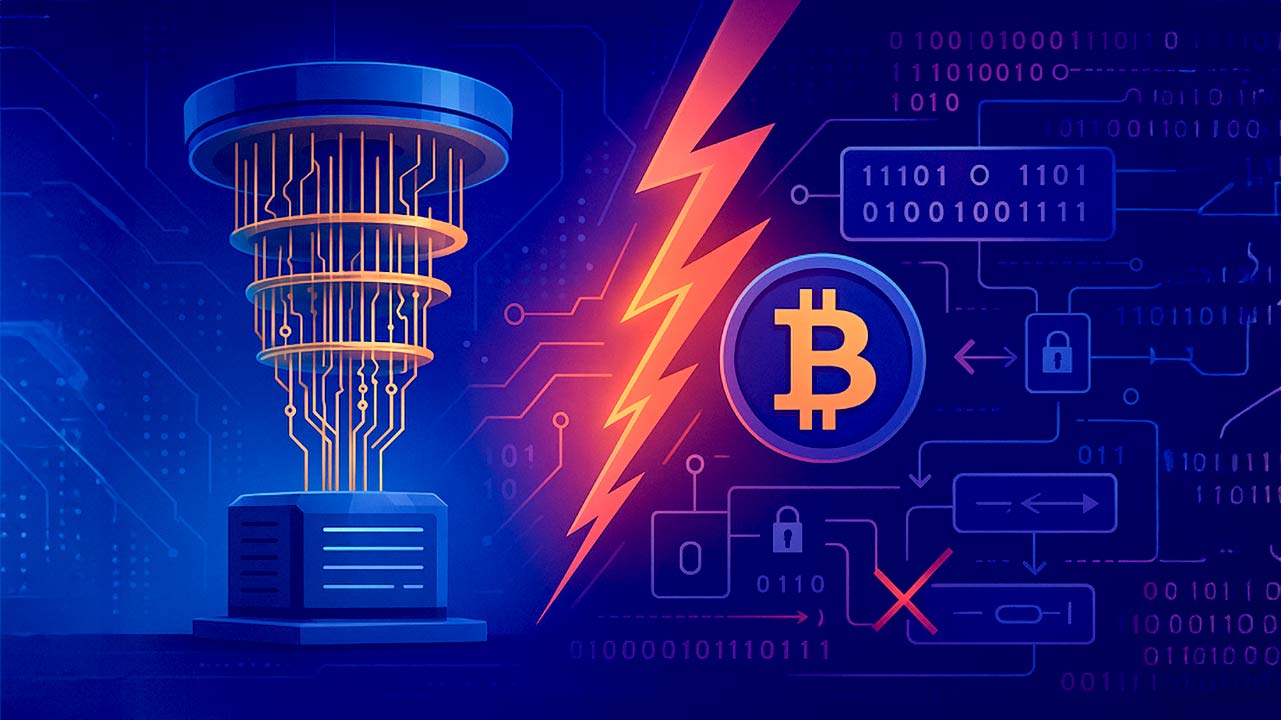AI and Blockchain: efficiency and trust in the age of autonomous agents
Just a few years ago, generative AI models entered the media spotlight. The dizzying pace at which these technologies evolve quickly turns yesterday’s revolution into just another item on the endless list of weekly disruptive innovations.
Amid this whirlwind of technological advancement, the term AI agents is gaining increasing traction. These autonomous systems are experiencing exponential growth, prompting us to rethink their supposed autonomy, decision-making capabilities and, above all, the level of trust we can — or should — place in systems that operate without constant human supervision.
As digital transformation continues to reshape how we interact with the world, it’s only natural that concerns are growing about the transparency, security and governance of these autonomous systems.
Blockchain technology is the key to solving the trust problem in autonomous systems.
In this context, at Telefónica Tech’s Blockchain team, we are convinced that Blockchain technology itself is the key to addressing the issue of trust. This decentralized infrastructure provides mechanisms to verify actions and decisions, preserving system integrity and striking the right balance between technological innovation and the necessary trust in independently operating systems.
What are AI agents and why are they transforming the digital landscape?
While the concept of intelligent agents isn’t new, it’s hard to ignore the momentum it has gained in recent months. But what exactly are AI agents? For years, we’ve developed APIs (Application Programming Interfaces) as structured languages for computer systems to communicate with one another. These interfaces have been essential to the integration of digital services but have always required human orchestration or specific programming for each interaction.
AI agents mark a qualitative leap in this paradigm: they not only respond to instructions, but also maintain a persistent state, possess their own initiative, and continuously learn from interactions. If traditional APIs are the vocabulary systems use to communicate, AI agents are full-fledged interlocutors with memory, intent, and adaptability.
—Example: When an AI agent schedules a meeting, it doesn’t just execute a simple command. The process involves a sophisticated sequence of actions: checking calendars, identifying participant preferences based on historical patterns, proposing viable alternatives, managing responses, and adjusting parameters as unexpected situations arise. All of this happens autonomously, without human supervision at each step.
Unlike traditional reactive AI systems that respond to specific queries and then 'forget' the context, agents maintain a continuous understanding of their goals and the environment in which they operate. This persistence enables them to handle complex tasks over time, adapt to changing circumstances and learn from each interaction to enhance future performance.
AI agents represent a remarkable shift in how we interact with technology.
Current limitations: the challenge of trust and autonomy
Despite their enormous potential, AI agents face significant limitations in their current implementation that hinder true autonomy:
Centralization and dependency
AI agents typically operate within centralized infrastructures. This creates single points of failure, third-party dependency, and limited interoperability. If a problem arises, the operation of all dependent agents can be disrupted.
Moreover, the capabilities and rules under which these agents operate may be constrained by the technical and policy specifications of the infrastructure, limiting their flexibility and interoperability.
Lack of transparency and trust
An agent’s internal workings can be complex and not always transparent (often likened to a “black box”). This makes it difficult to verify the decisions these systems make.
The absence of a clear, auditable log of actions and the difficulty in assigning accountability in the event of errors or issues can diminish trust in large-scale implementations.
Autonomous coordination and oversight
AI agents face significant challenges when attempting to carry out economic transactions autonomously. These limitations are often due to strict regulations designed to prevent fraud and malicious attacks, which restrict the ability to execute programmatic transactions freely.
Additionally, the lack of effective incentive mechanisms to align the interests of multiple autonomous agents and the difficulty of collaboration without centralized supervision pose further barriers.
■ These factors together represent significant obstacles that limit the ability of agents to operate independently in complex economic environments.
These challenges highlight the need to evolve toward more decentralized and transparent systems that can support true autonomy and the trust required for AI agents to deliver on their transformative promise.
These autonomous systems compel us to reconsider their decision-making capabilities and the level of trust we can place in them.
Blockchain as the solution: the infrastructure for truly autonomous agents
From the AI agent perspective, Blockchain technology emerges as a foundational infrastructure, addressing each of these limitations head-on:
Decentralization and true autonomy
Blockchain provides a decentralized infrastructure where agents can operate without relying on a central authority. Its distributed nature eliminates single points of failure, allows agents to exist and operate without control from a specific entity, and establishes a common standard that facilitates interoperability across agents from different origins.
Verifiable transparency and trust
All agent actions and decisions are permanently and immutably recorded on the blockchain. Any party can verify an agent’s historical behavior, trace the origin of every decision and action, and achieve a level of transparency unattainable in centralized systems.
Agent economy
Cryptocurrencies enable frictionless micropayments between agents; smart contracts formalize and execute agreements automatically; and the economy built on Blockchain aligns the incentives of independent agents, giving rise to an entirely new economic ecosystem.
■ The combination of Blockchain and AI agents enables a system where agents can interact, collaborate, and compete autonomously, creating value and solving complex problems without constant human intervention.
With Blockchain, all agent actions and decisions are recorded permanently and immutably.
The future: an economy of autonomous agents
The synergy between AI agents and Blockchain is essential for fostering autonomy, transparency and trust in the digital age. Although challenges remain in terms of scalability and efficiency, the convergence of these technologies promises a more decentralized, transparent and trustworthy technological future.
This convergence is laying the foundation for a new digital economy where:
- Autonomous agents can deliver services, negotiate, collaborate, and compete.
- Humans can delegate complex tasks to coordinated teams of agents.
- The transparency and verifiability of Blockchain ensure these systems are trustworthy.
- Economic mechanisms align the incentives of all participants.
This approach not only enhances the autonomy and capabilities of AI agents, but also increases user trust in these systems — a crucial factor for their adoption and application across countless sectors.
 Hybrid Cloud
Hybrid Cloud Cyber Security & NaaS
Cyber Security & NaaS AI & Data
AI & Data IoT & Connectivity
IoT & Connectivity Business Applications
Business Applications Intelligent Workplace
Intelligent Workplace Consulting & Professional Services
Consulting & Professional Services Small Medium Enterprise
Small Medium Enterprise Health and Social Care
Health and Social Care Industry
Industry Retail
Retail Tourism and Leisure
Tourism and Leisure Transport & Logistics
Transport & Logistics Energy & Utilities
Energy & Utilities Banking and Finance
Banking and Finance Smart Cities
Smart Cities Public Sector
Public Sector





